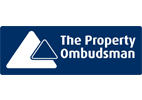Landlords end of year Tax; The basics
24 Feb 2015
All landlords need to keep HMRC in the loop - You must inform HMRC as soon as you start renting out a property, even if you’ve not yet made any income from it. Once you have earned £2,500 in rental income, you may be liable to pay tax on it. Landlords whose properties generate more than this amount in rent each year must complete a Self-Assessment Tax Return.
How you can reduce or avoid a tax bill - The amount of tax you pay depends on the type of property you are renting out and your personal circumstances. The tax obligations are different for each of the three categories – residential properties, furnished holiday lets and commercial property.
As a buy-to-let landlord you – or your company – pay tax on any profit you make from renting your property to residential tenants. This means you don’t pay income tax on what are known as allowable expenses – and there are plenty of these to get your teeth into. For example, you can claim back letting agents and accountant’s fees. Maintenance and repairs are also covered, as are buildings and contents insurance premiums.
Keep a record of your property-related outgoings. Ultra Lets will provide you with account statements on a monthly basis, keep them handy. There are plenty of elements to renting out property that you need to keep a record of, including Council Tax bills, any utility bills you pay on the rented property and other direct costs like advertising and phone calls to tenants. Even so, it’s probably best to seek professional advice when calculating tax obligations and allowance expenses. The HMRC Self-Assessment helpline can be reached on 0300 200 3310 if required.
What you can’t claim for - You can’t claim for capital expenses such as buying the place or renovating it, but can lodge a claim for wear and tear. Be aware through that excessive claims will be scrutinised, so don’t think the tax office will automatically claim for the cost of a new bathroom suite or a plush kitchen. HMRC allows you to claim up to 10 per cent of the net rent as a wear and tear allowance if you provide a furnished flat or house, but make sure you have the receipts to hand.
Cheap rentals and HMRC - Even if you don’t earn £2,500 a year from your tenants - after considering all the costs you can claim to reduce tax – you still need to keep HMRC in the picture. They will be able to help ensure you tick all the right boxes as a landlord. You can also visit the Money Advice Service’s guide on your responsibilities as a buy to let landlord for more information.

Rated 5 stars on Google
by our customers

Talk to an Ultralets
team member







